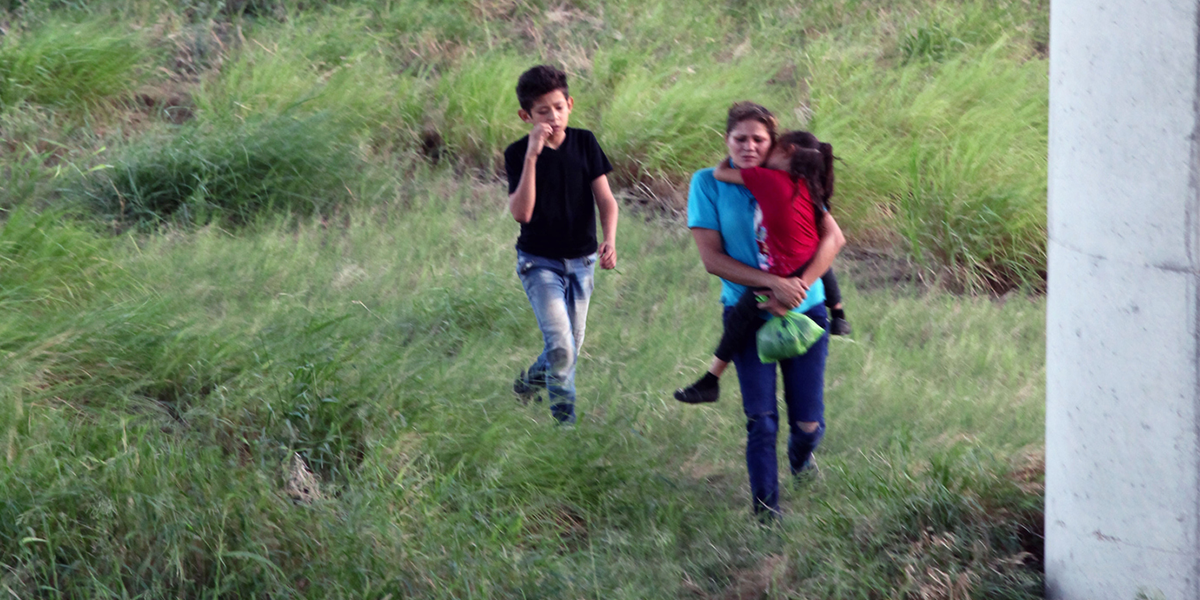The Migrant Caravan: Your Questions Answered
09 November 2018

In recent weeks, you’ve likely heard of the caravan of migrants and asylum seekers traveling to the United States from Central America. The caravan, which at some point reached approximately 8,000 people, including many children and families, travels north to seek safety and security.
There has been a lot of misinformation about what the caravan is and who is a part of it, so here’s a few questions we’ve tried to tackle for you.
Why are they leaving?
The Northern Triangle countries of El Salvador, Honduras, and Guatemala constitute the world’s most dangerous region outside of a war zone. These countries are struggling with violence, organized crime, corruption, militarization, and political repression. Many people are being targeted for their political beliefs, while others are being exploited and forcibly recruited by gangs. People in the caravan felt their lives were at risk and had no other choice but to flee in search of protection.
Who is a part of the caravan?
The caravan is mostly made up of people fleeing violence, political persecution, and extreme poverty, including children and mothers.
Where is the Caravan?
The caravan of about 5,000 people has made it to the US-Mexican border in Tijuana where the United States Customs and Border Protection agency has currently shut down the border crossing due to conflict between migrants and both US and Mexican authorities. The conflict involved only 500 people, a small fraction of the caravan. It is also reported that authorities are using both pepper spray and tear gas on the caravan.
The Mexican government reports that about 3,264 members of the caravan have registered to seek asylum in Mexico. However, there have been reports of kidnapping and trafficking of members of the caravan by Mexican drug cartels. Violence and other human rights violations directed at members of the caravan by Mexican government authorities, such as the denial of their right to claim asylum, have also been documented by relief and human rights organizations monitoring the caravan’s journey.
Most people have traveled by foot, enduring difficult conditions including heat, illness and exhaustion with little to no access to basic needs.
How is JRS Responding?
JRS Mexico – a team of lawyers, psychologists, social workers, and Jesuits with operations in Mexico City, Comalapa, and Tapachula – is responding in every way it can. When the caravan first reached Mexico, one of the biggest needs was to be present and walk with the caravan to ensure the safety of its people. JRS partnered with other NGOs to spread themselves out across the caravan, which usually extended about 10 kilometers in length, to be able to monitor and protect the caravan against violations by cartel groups, traffickers, and Mexican police.
JRS Mexico is also working with other NGOs and UNHCR, the UN Refugee Agency, to respond where they can to the emergency needs of the caravan. JRS/Mexico provides legal services for refugees, including members of the caravan, to apply for asylum, supports refugees in transit with temporary shelter and food assistance, and provides psychosocial support for those refugees who have suffered trauma both in their home countries and while in Mexico.
Members of the caravan are also accessing JRS Mexico’s existing services including psychosocial support and child-safe spaces in Tapachula and legal assistance in Mexico City.
As the caravan continues to travel north, JRS/USA also urges the U.S. Government to respond to this humanitarian crisis with compassion and welcome. The U.S. must allow due process for those seeking asylum. Read our statement in response to the Trump Administration’s ban on asylum seekers.
Take action by sending send a letter to the Administration and your policymakers urging them to oppose this Presidential Proclamation and advocate for the rights of asylum seekers and refugees.



